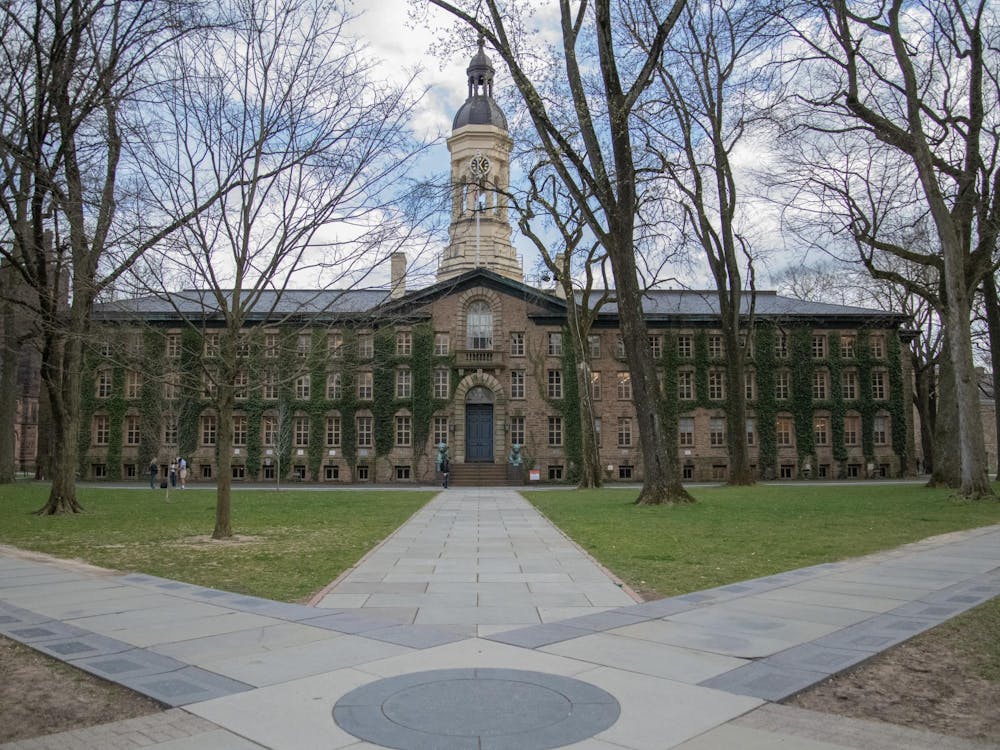The Zagster bike-share program added eight new bike stations and 50 new bikes around campus over spring break, according to Nate Taber, head of marketing at Zagster. This puts the campus total at nine bike-share stations and 60 bikes.
“More than ever, [the expansion] allows students to actually use [bikes] as a means of transportation, so instead of driving or using another motorized form of transportation, they can ride a bike to get to their destination,” Taber said. “These types of programs represent real progress and real success for bike-sharing as both a concept and a reality on the ground.”
University Director of Transportation and Parking Services Kim Jackson said that the motivation to expand stems from a need for students to have both easier and eco-friendly methods of travelling around campus.
“I think that it is something that students — undergraduates, graduates — and faculty and staff are going to really embrace here on this campus because we are a pedestrian campus,” she said.
She added that the student feedback she’s received has been enthusiastic.
According to a press release from Zagster, Inc., potential users of the bike-sharing service pay a one-time $20 membership fee. Rides for members are then free for the first two hours, and then members have to pay $2 for every additional hour afterwards. Zagster’s website states that bike-share stations are located at the James Forrestal Campus of Princeton University, the Engineering Quadrangle, Firestone Library, Richardson Auditorium, Frist Campus Center, Forbes College, Lakeside Apartments, Lawrence Apartments, and the original docking station at Princeton Train Station.
Using a bike with the program requires the free Zagster app, according to Taber.
“If you don’t have a smartphone, you can unlock the bike via text message,” Taber noted.
A user enters a unique bike code, found on the bikes themselves, and then goes onto the app to unlock and use the bike. When a user is done with a bike, they can return it to a Zagster station, use a specific locking code to secure the bike and end their trip in the app, Taber said.
He added that the uniqueness of the Zagster bike-sharing program is bikes being equipped with fourth-generation bike-sharing software. In other words, all technology needed to use a bike — such as locking and unlocking — are located on the bike itself, he said.
Jackson said that when the University was looking for a bike-sharing company, they were especially looking for one with bikes that didn’t come with a lot of infrastructure and would allow for an easy expansion.

“Unlike a lot of large municipal programs such as Citi Bike in New York City or Capital Bikeshare in Washington D.C., Zagster has a model that tuned towards medium and smaller-sized environments and communities such as the town of Princeton, New Jersey and the Princeton University campus,” Taber said.
That makes the system cheaper than large, third-generation, kiosk-based systems, according to Taber.
"[This] also makes it more nimble and easier to deploy in a diverse set of environments,” he added.
Dean of Forbes College Patrick Caddeau said that bikes were a crucial part of University student life.
“Clearly, based on the number of bikes you see around campus and especially in Forbes, I think [bikes] are a great resource,” he said.
He added that biking is a healthy and affordable mode of transportation that also has no impact on one’s carbon footprint.
“The thing that I really like about it is, if this succeeds and it’s in place and we have more bike stations around campus, we will be able to get the word out to students before they come to Princeton,” he said.
He noted that incoming students won’t have to worry about the hassle of buying and maintaining a bike in preparation for coming to college.
“They’ll know that there are bikes here on campus so they don’t have to go through the expense and trouble of buying a bike and then figuring out what to do with it,” he said.
Jackson added that she hopes to see the bike-share program expand to a point where students no longer have to bring their own bike to campus.
“Students don’t have to bring a bike or come here as a freshman and feel they have to go on and buy a bike… now, with bike-share, they also have that option to more easily get around campus,” she added.
“When we look and talk about sustainability… you need to give commuters and people as many options as you can… biking and walking are surely two options that we can use here at Princeton, in addition to the TigerTransit bus, so that people aren’t driving their cars,” she said.
Caddeau said he also believed the program could inspire other, lasting acts of sustainability in students’ lives, noting that the familiarity one develops from the University’s bike-share program will encourage them to use programs elsewhere when they travel.
“You may be less hesitant to participate in it. If you go to a lot of cities… they have wonderful bike-share programs and you’re familiar with it from the Princeton campus, and you’re more likely to give bike-share programs a try in another city when you’re visiting instead of taking a cab,” he said.
Jackson added that the bike-share program is also convenient for University faculty and staff, who can leave their cars parked in lots and instead use the bikes as a time-efficient and environmentally-friendly alternative.
TJ Smith ’18 said that he found out about the expansion in the program from emails sent by the Undergraduate Student Government and Forbes. He added that he’s frequented the bike-share stations often since returning from spring break and added that the easier mode of transportation from Forbes to the E-Quad is particularly convenient.
“It would be nice if there was another set of bikes down by Jadwin and Lewis, but otherwise it’s really nice and convenient,” Smith said.
Caddeau noted that bike-sharing programs ultimately help solve the wider problem of stray bikes on campus - abandonment of bikes that do not have a summer storage space.
“We try and take some of the abandoned bikes, clean them up and then donate them to local area programs, but because it’s abandoned property we have to hold on to the bikes for a certain period of time," he said.
The University holds on to these bikes for a period of 90 days to 100 days, Jackson added.
"The University is running a space to store those abandoned bikes, so not only is it very expensive but it takes up a lot of space before we can even get to the point of donating them,” he explained.
Jackson said that she hopes the bikes are one day able to develop the technology for students to use their TigerCards to access a bike as opposed to a code.
Taber said more bike-share stations will be added throughout the town of Princeton via a grant in the summer or fall, and added that the Mayor of Princeton Liz Lempert posted a tweet that reflects this future initiative.
“If that expansion were to happen in the future, that would mean that the system would be even more useful for both students and residents in Princeton. Like always, we’re working with the University and with the city in order to deliver the best solution for bike transportation,” Taber said.
Terbush added that discussions of expansion have demonstrated demand for bike-sharing programs.
“The fact that Princeton decided to go ahead with such a significant expansion is proof in itself of the success we’ve already had. The fact that Princeton, the town, is now looking to help with that is further proof,” he said.








